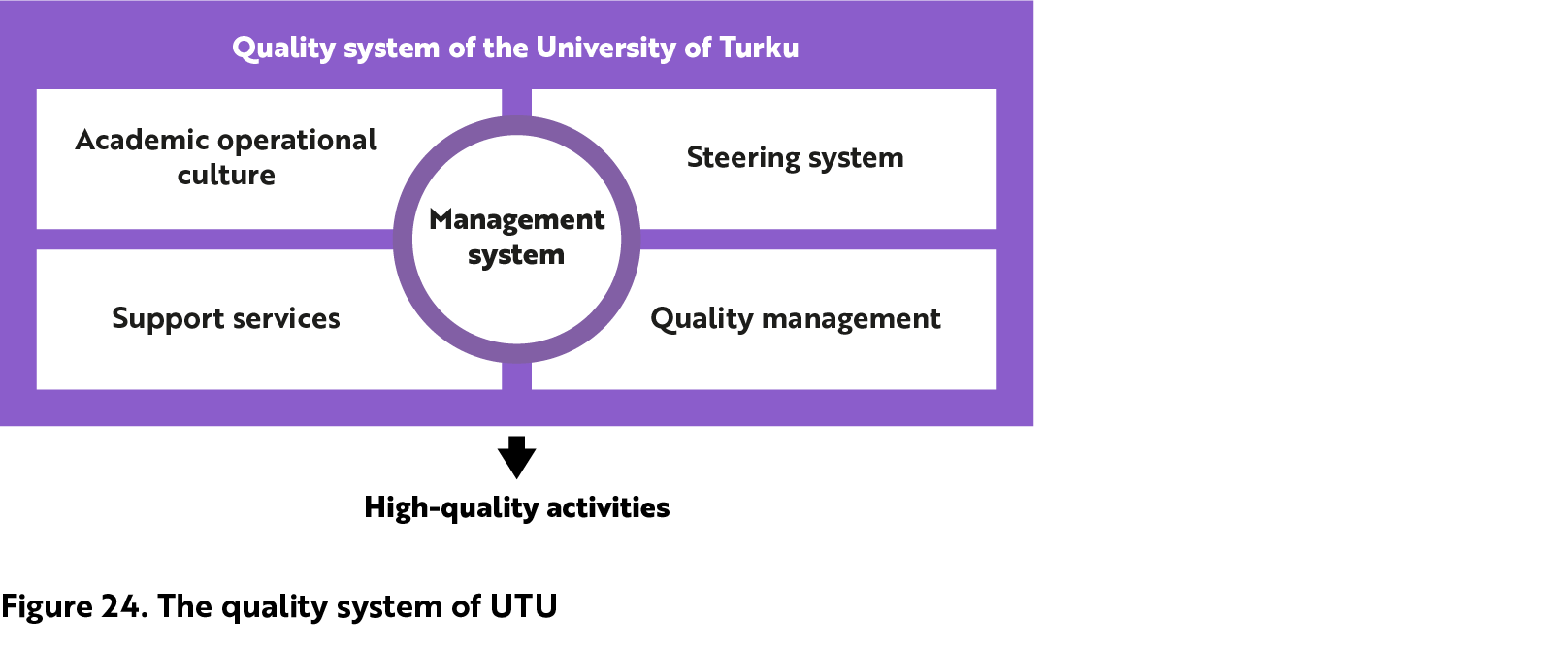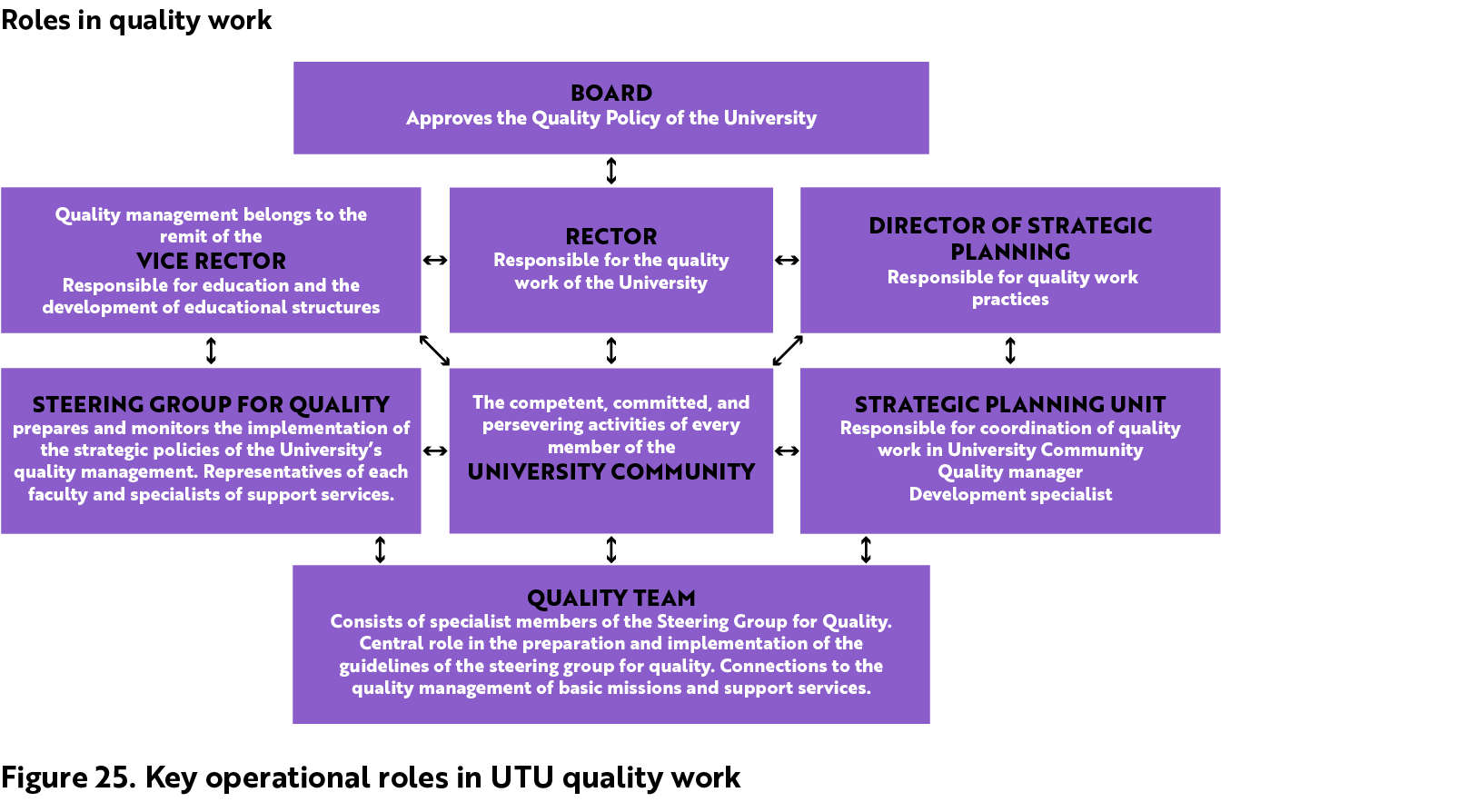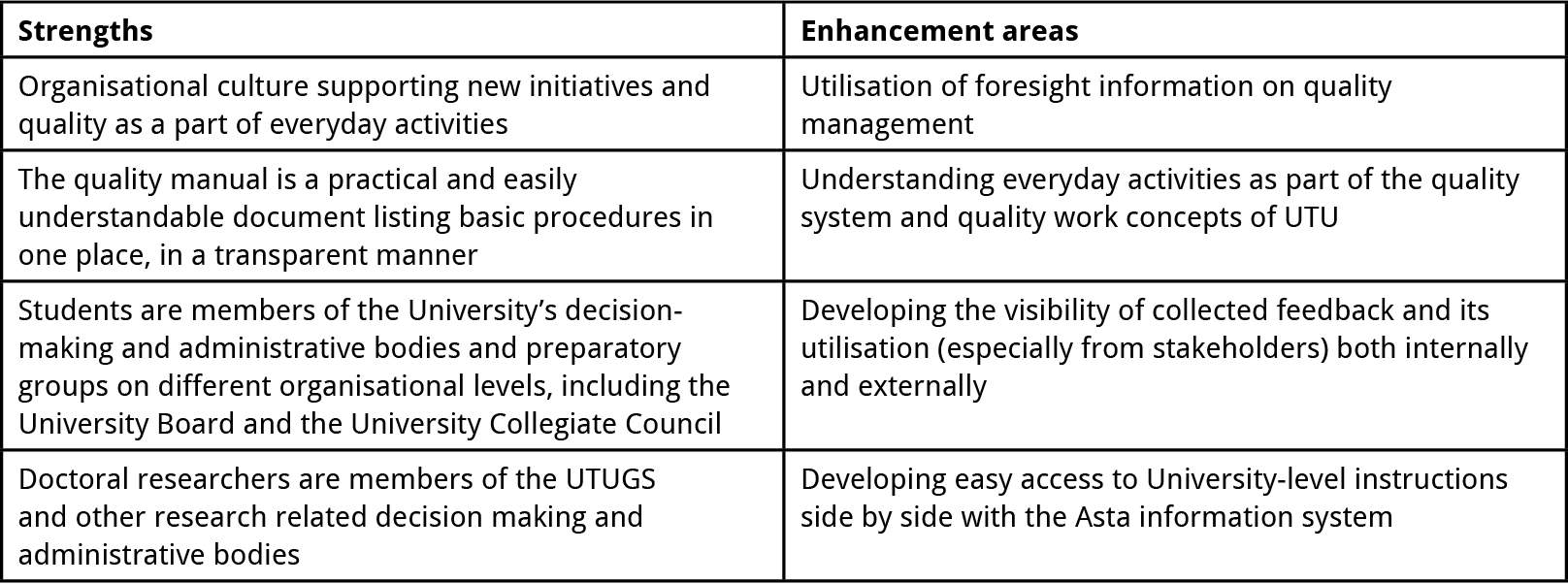UTU has a functioning quality system that covers its core duties
The University’s quality system is based on a strategy-oriented approach, in which the management system, steering system, quality management, support services, and academic and operational culture are interwoven. The quality system comprises a participatory strategy process, annual planning processes, strategy implementation monitoring, internal and external evaluations and feedback information.
UTU’s quality system is functioning and covers the University’s core duties and services. The interviews indicated that significant progress had been made in recent years in structuring and visualising the quality system. As a result of this work, the University of Turku’s Quality Manual defines the objectives, responsibilities, and practices of the quality system for the University’s core functions and services. The audit team attaches particular importance to the message that emerged from the interviews: quality work has become more embedded in the everyday life of the units. In contrast, the unit-specific quality system descriptions in the intranet vary widely. Some faculties and units clearly describe their strategic foci and procedures for collecting and handling feedback, while others lack this information on their website.
There is evidence of the impact of the quality system (PDCA) in education and research. The societal engagement and impact, its activities and quality management have been a focus of UTU’s development since the last FINEEC audit. It is also partly reflected in the optional theme of this audit of the University of Turku: Support services for societal impact. The audit team recommends that the evaluation and monitoring of societal engagement and impact on the quality system be implemented throughout the University.
While the information produced by the quality system is clearly used for development work, the Act phase of the PDCA cycle needs to be made more visible to members of the university community and stakeholders. The audit team agrees with the University’s self-assessment report that it should invest more in developing the visibility of collected feedback and its utilisation.
An open-quality culture enables broad participation
At UTU, the quality of operations and strategy implementation are monitored and developed in an open and participatory manner at different levels of the organisation. Staff and undergraduate students participate in developing activities in the organisation’s different institutions and working groups appropriately. One example of an inclusive and open-quality culture is regular meetings and direct interaction of student representatives with the Rectorate and deans.
The external stakeholders can influence the University’s operations as members of the UTU Board, councils, advisory boards, and in different working groups. The Board decides on new degree programmes, so stakeholders’ views are fed into the programmes’ evaluation through this process. The audit team recommends including students in continuous learning as development partners in developing and monitoring courses. Similarly, the University should continue to better integrate international students, continuous learning students and doctoral researchers into the UTU community.
The University of Turku’s steering group for quality work monitors and develops the quality system. The coherence of the quality system is ensured by common processes and guidelines at the university level. Although the quality system has been in place for more than ten years, UTU must continue to pay attention to implementing the quality system in everyday life and communicate to the University community that quality work is essentially the development of one’s own work.
Based on the audit visit, there is a wealth of good practice in different faculties and units in areas such as curriculum work, student feedback and cooperation with external stakeholders. While the different councils are working to disseminate good practices, there is scope for making good practices and their sharing more visible. UTU could also achieve further synergies within the University and further cooperation with other universities.


